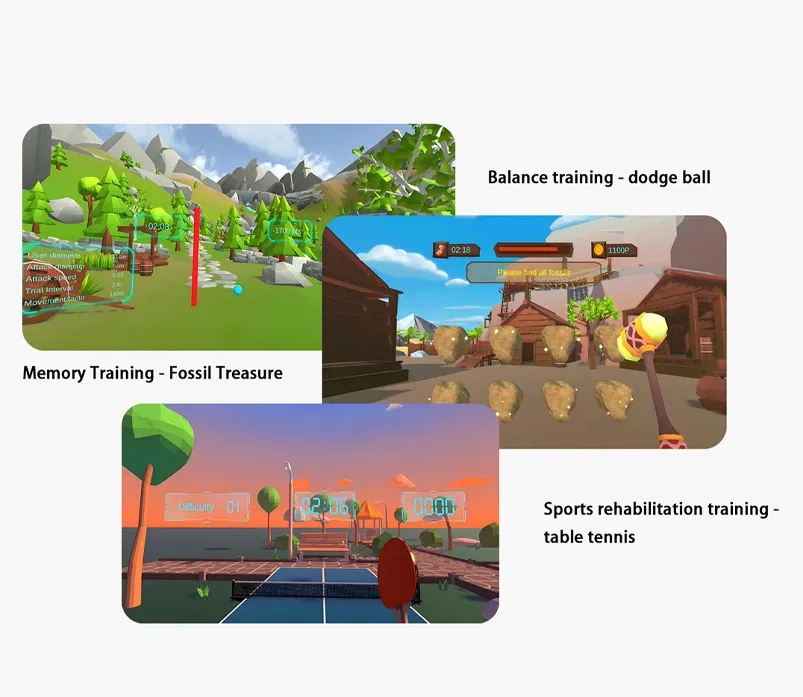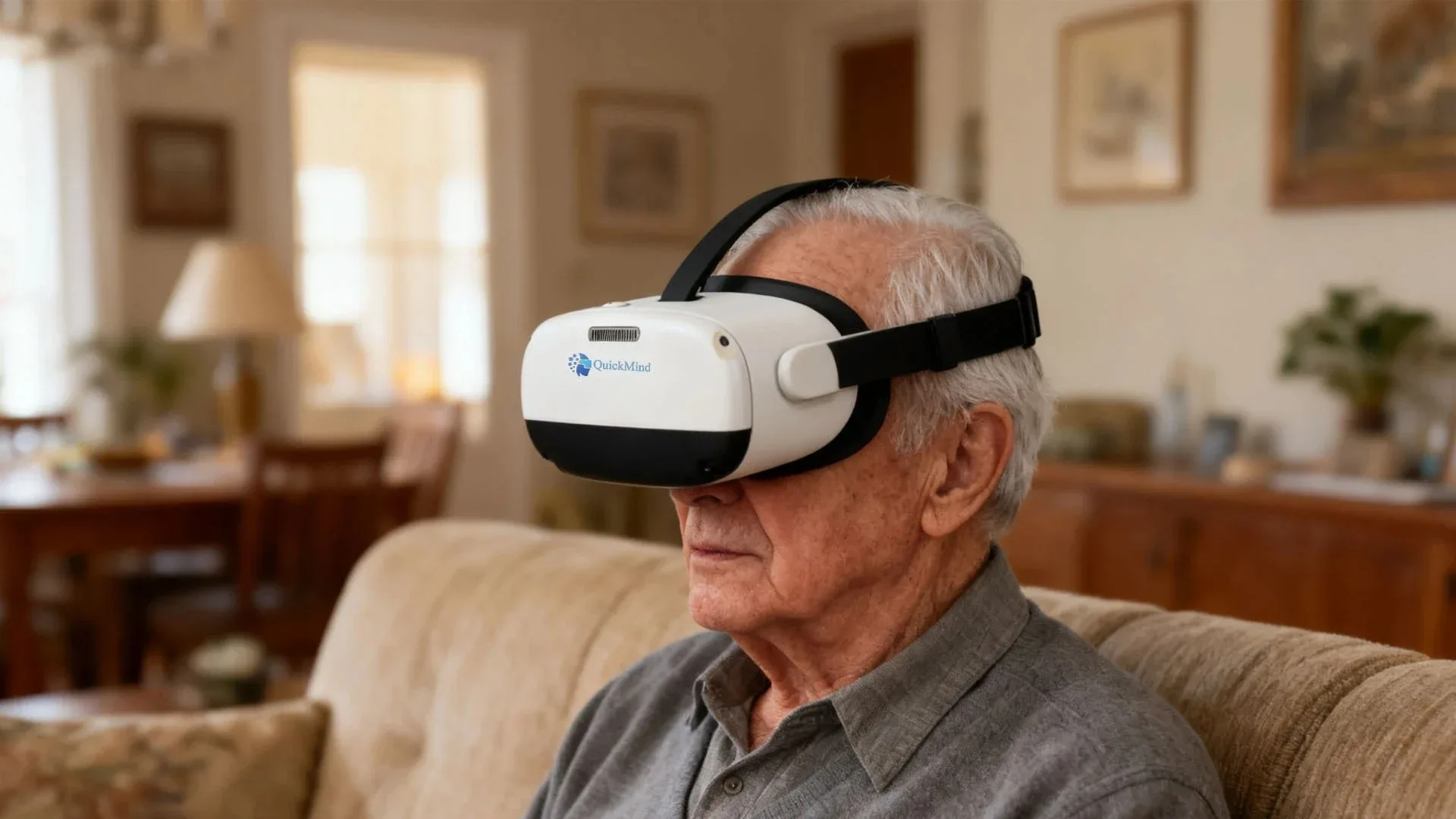
Developing assessments implies that augmented reality platforms method can considerably refine the lives of persons affected by neurodegenerative disorders. By transferring them to serene locations, VR delivers a exceptional possibility for neural stimulation, mood regulation, and social interaction. Many tests have established that VR therapy can diminish turmoil, worry, and despondency in dementia persons affected while also strengthening their recall, mindfulness, and verbal abilities.
- VR permits individuals with dementia to recollect precious moments through collaborative illustrations.
- Moreover, it can supply a secure and caring space for group interaction, developing a perception of union and inclusion.
- Professionals believe that VR therapy has the capability to modernize dementia treatment by providing new and innovative means to tackle the multifaceted obstacles faced by participants experiencing this syndrome.
Electronic Health Solutions for Mental Boosting in Alzheimer's
Emerging online solutions are revealing effectiveness in the province of mind sharpening for patients living with cognitive Alzheimer's illness. These software tap into virtual systems to stimulate brain capability and potentially delay the aggravation of the condition. Motivating activities, personalized coaching, and thought training are some illustrations of procedures being analyzed in this evolving sphere. While evaluations are ongoing, digital therapeutics grant a supportive roadway for enhancing the conditions of those diagnosed with cognitive Alzheimer's illness.Novel VR Techniques for Alzheimer's Intervention
With respect to participants suffering from Alzheimer's condition, the progressive decline of memory and mental skills can severely impact their skill to socialize with the external world. This damaging disease often causes in isolation, agitation, and a impaired ego recognition. Current refinements in virtual reality technology bring a trailblazing opportunity to handle these challenges by producing immersive experiences that can enhance the brain and restore cognitive function.
Simulated reality settings designed specifically for patients diagnosed with Alzheimer's can engulf them in nostalgic environments, such as their former home or a admired outdoor area, awakening positive memories and lessening anxiety. Through interactive missions, these virtual worlds can also test cognitive abilities like mind retention, concentration, and judgment.
The positive effects of virtual reality in Alzheimer's therapy are vast. Early evaluations have shown optimistic results, with patients demonstrating improvements in cognitive power, mood, and overall quality of life. As this system develops, it holds the key to revolutionizing the way we approach Alzheimer's disease, granting a new pathway for therapy and advocacy.
Virtual Memory Therapy for Alzheimer's Clients
Reminiscence therapy is a well-respected technique used to improve cognitive function and affective health in individuals with Alzheimer's disease. This traditional form of therapy involves engaging patients to recall past experiences, often through interchange. However, a radical approach is emerging: VR-mediated reminiscence therapy.
This immersive technology utilizes virtual reality headsets to transport patients in convincing environments that recall memories from their past. By going through these man-made contexts, individuals with Alzheimer's can bond with their past in a significant way.
Harnessing VR to Improve Cognitive Abilities in Dementia
Virtual reality (VR) is emerging as a encouraging resource in the fight against dementia, making available modern ways to engage memory and cognition. By designing immersive scenarios, VR can guide individuals with dementia recover memories, participate in meaningful activities, and elevate cognitive skills. Studies have indicated that VR interventions can lead to substantial improvements in memory recall, attention, and spatial awareness. Moreover, VR provides a risk-free and beneficial space for individuals with dementia to communicate, reducing feelings of isolation and apprehension.
- Additionally, VR can be adjusted to individual needs and preferences, helping improved levels of interaction.
- Although the promise of VR, progressive research is needed to fully understand its long-term impact in dementia care.
Rekindling Memories, Rebuilding Connections: VR's Impact on Social Engagement in Alzheimer's Disease
Artificial digital experiences is emerging as a novel instrument in the area of brain degenerative illnesses. By developing participatory and mutual atmospheres, VR has the potential to revive memories, encourage social interaction, and raise the overall quality of life for individuals experiencing Alzheimer's. Considered one of the powerful aspects of VR is its ability to convey users to well-known scenes and experiences from their past. Whether it's a tour of a childhood home or a depiction of a beloved holiday, these virtual journeys can stimulate happy memories and consolidate cognitive operation. Furthermore, VR can promote social interaction by joining individuals with others who share Alzheimer’s disease similar memories. This can be particularly rewarding for people with Alzheimer's who may grapple with traditional social communication. By hosting a safe and captivating virtual space, VR can reduce feelings of isolation and loneliness, which are common among people experiencing Alzheimer's. Overall, VR holds immense promise for changing the lives of patients with Alzheimer's by reawakening memories, recovering connections, and advancing their quality of life. As technology advances to expand, we can expect even more advanced applications of VR in the field of dementia care.Gamifying Cognitive Training: Implementing VR Techniques for Alzheimer's Aid
Artificial reality platforms is rapidly emerging as a disruptive tool in the realm of cognitive training, particularly for clients living with Alzheimer's disease. By immersing patients in interactive and engaging virtual environments, VR-based interventions can improve cognitive functions such as memory, attention, and problem-solving. These games regularly incorporate elements of storytelling, exploration, and social interaction, making the training process very motivating. Studies have shown that VR-based cognitive training can lead to substantial improvements in cognitive performance, likely delaying the progression of Alzheimer's symptoms. Moreover, VR provides a safe and controlled environment for patients to practice new skills and cultivate their confidence.
- Game elements in VR training can make it more interactive and appealing for users with cognitive difficulties.
- VR simulations can offer accurate scenarios that promote and boost cognitive functions.
- Personalized VR experiences can cater to specific requirements and preferences.
Harnessing Virtual Settings for Dementia Relief
Engaging replicated spaces offer a modern and encouraging avenue for participants with mental deterioration. These technologies can simulate familiar environments, allowing those affected by cognitive decline to recollect cherished memories and cultivate a sense of solace. By reducing the impacts of dementia, VR spaces have the potential to advance quality of life for both patients and their families.
- Research indicate that VR uses can positively impact cognitive function, neural well-being, and even neuromuscular abilities in individuals with dementia.
- Moreover, VR creates a safe and managed environment for exploration, reducing the risk of harm.
- In addition, VR can encourage social connections by allowing individuals with dementia to collaborate in digital activities with others.
Virtual Reality for Prompt Alzheimer's Screening and Intervention
Alzheimer's condition poses a elaborate difficulty, often continuing unnoticed in its early stages. However, virtual reality (VR) is developing as a cutting-edge tool for early detection. Through immersive platforms, VR can test cognitive faculty in ways that traditional methods fail to. This ability allows for immediate action strategies, potentially stalling disease progression and optimizing the quality of life for clients with Alzheimer's.
- Virtual reality evaluations provide cognition, focus, and orientation testing within secure and managed environments.
- Specialized virtual sessions support personalized cognitive engagement for users.
- Augmented virtual areas support engaging exchanges for persons with Alzheimer's.
Closing the Divide: VR for Communicative and Interactive Dementia Support
{In the realm of dementia care, innovative technologies are emerging to supplement the lives of participants managing dementia. Virtual reality (VR) is one such platform that holds immense power for closing social and communicative divides common in dementia patients. By simulating captivating interactive virtual spaces, VR can animate cognitive function, reduce behavioral issues, and ultimately improve the overall well-being of subjects managing dementia.
VR experiences tailored to dementia care can range from remembering therapy sessions that immerse patients in recognizable historic moments, to interactive games that promote social interaction and cognitive development. Furthermore, VR has the power to connect people with dementia to support circles, regardless of physical isolation, fostering a sense of community.
- VR can facilitate in reducing agitation and anxiety by providing a calming and enticing environment.
- Research have shown that VR interventions can lead to improvements in cognitive function, mood, and social interaction in clients experiencing cognitive decline.
- As technology grows in evolve, we can expect even more innovative and effective
